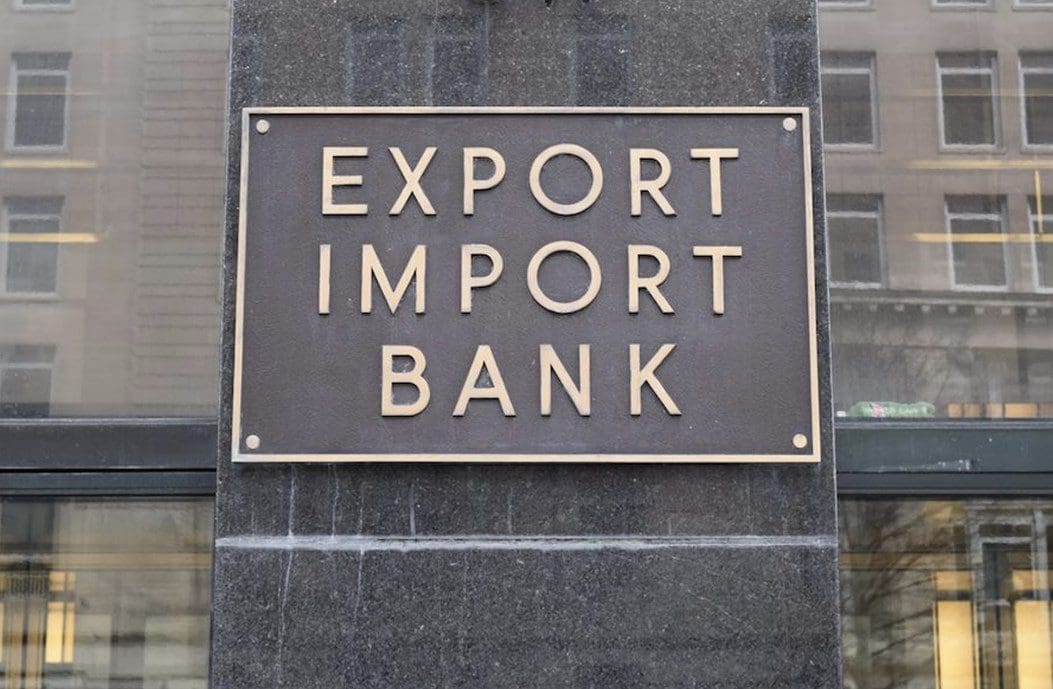After nuking their debate rules for nominations last month for the stated reason that they wanted to push the confirmations of more Republican judges, the Senate this week used the rule change instead to waste precious floor time expanding corporate cronyism.
The Export-Import (Ex-Im) Bank for more than 1,000 days has lacked the full quorum of its board of directors, which is necessary to approve taxpayer-funded loans of over $10 million to benefit America’s richest corporations (think Boeing, Caterpillar, and General Electric). The board now has a full slate, and can confirm loans up to $100 million.
The Ex-Im bank, you may recall, loomed large on the Tea Party agenda in 2014 and 2015. It stood as a symbol of everything establishment Washington had gotten wrong: K Street colluding, corporate favoritism, and the general feeling of, “Wait, I’m sorry, my tax dollars do what?”
It’s why many Tea Party conservatives counted the inability of the bank to operate properly as a success, arguing that shelling out millions in taxpayer-backed loans to help some of the richest corporations in the world access “difficult” markets wasn’t a question of national interest.
But the recent inability of the Ex-Im board to waste as much taxpayer money as its mandate allows has provided a good test case, ironically, for why the Export-Import Bank is completely unnecessary.
Its proponents claim we need the bank to support American exports overseas; that without the bank, U.S. exports would crumble. It follows, then, that the bank’s limited capacity since 2015 should have resulted in a sharp fall in U.S. exports.
But research by Mercatus Institute scholar Veronique de Rugy shows otherwise. Since 2015, when the Ex-Im board lacked a quorum for loans over $10 million, U.S. exports have not been affected at all. Neither has the U.S. trade balance. In fact, since 2015, the bank showed a 72 percent drop in financing capabilities, only to be met with exports that were $266 billion higher than when Ex-Im’s financing was at its peak.
The total value of U.S. exports has averaged $2.3 trillion annually since 2015—far from the “serious blow to the United States economy” which U.S. Trade Representative Robert Lighthizer recently claimed was happening due to the lack of a full functioning bank.
To put this in perspective, consider that Boeing—far and away the largest beneficiary of Ex-Im financing—managed to have its best year ever in 2018 with significantly less support from the U.S. taxpayer.
Of course, now that Boeing’s shares are crashing due to the fact that one of its airplane models keeps . . . well, also crashing, suddenly, it’s become necessary again for the bank’s board to be firing on all cylinders.
Correlation or causation? Your guess is as good as mine.
Lately, Ex-Im advocates have been touting the bank as a “national security weapon,” critical to blunting China’s actions to subsidize their own exports. But, as Heritage Foundation senior research fellow Diane Katz has pointed out, China’s goals are far broader than simply raising its economy through exports. They are also dumping over $1 trillion on “new infrastructure and connectivity across the Indo-Pacific and Eurasian supercontinent.”
Using taxpayer money to subsidize purchases of U.S. exports is hardly going to stop China’s trillion-dollar freight train of economic nationalization. It’s like arguing that a mosquito can single handedly stiff-arm a rocket propelled grenade.
And, there is also the awkward fact that while the bank’s supporters are busy hyping it as a critical tool to stop Chinese economy hegemony, the bank is also providing subsidies to Chinese firms to purchase U.S. goods. Oops.
Republicans Nuked the Rules for This?
Then there is the obvious issue of why the Republican Senate chose to waste precious floor time on corporate cronyism, rather than confirming judges, or higher level executive branch nominations. There are over 250 nominations still pending in the Senate, and 144 judicial vacancies. The Senate may have just confirmed its 39th circuit court nominee, but there remain more judicial vacancies (there are now 144) than when Trump took office (when there were 112).
And, despite Senate Republicans nuking their debate time in order to speed up confirmation, they still aren’t working more than 2.5 days a week, putting floor time at a premium.
Why, then, is the Senate prioritizing the Ex-Im board over the roughly 30 pending district court judges? Particularly when one of the Ex-Im nominees—Judith Pryor—was chosen by Democrats? (Yes, the Senate just burned floor time confirming a Schumer nominee rather than a Trump judge.)
Remember, the Senate could easily overcome their nominations backlog—that is, confirm every single nominee in the queue—in just nine weeks if they decided to work the same amount of time as every other American. (That is, 9 a.m. to 5 p.m., five days a week.)
But since they clearly don’t intend to work a normal work week, prioritization is key. And, I would argue, nominees to the Export-Import Bank (one of whom, again, was chosen by Chuck Schumer) hardly rise to the level of burning valuable floor time—particularly for a corporate crony bank that many in the Republican conference think shouldn’t exist in the first place.
But, this is Washington, after all. So unless the rest of those 250 pending nominations (including more than 60 judges) have K Street lobbyists and a dump trucks of campaign cash, they can just get in line.





